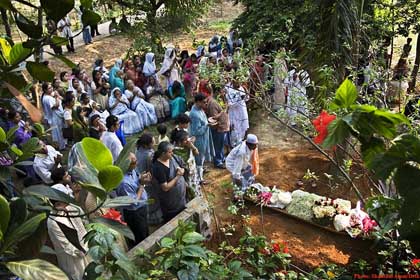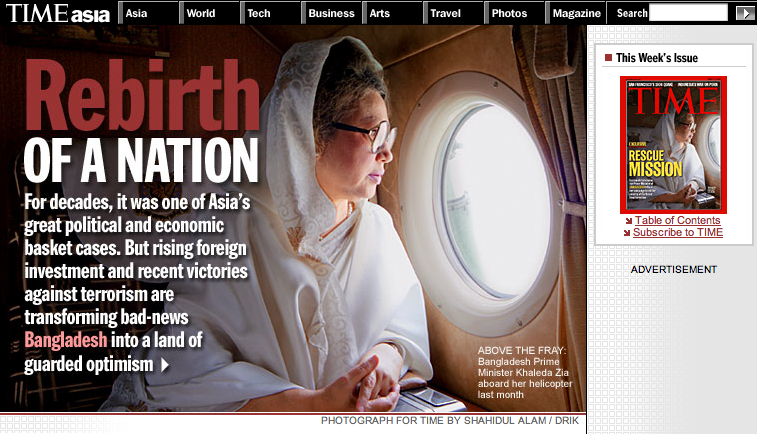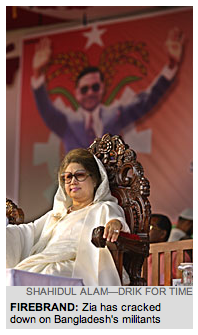There were serious gaps in dispatch I which need to be filled in. Such as Sabeen, like an apple savvy Ma Kali hovering over me to make sure that I called Evelien immediately to call off Dar Es Salaam. Skype on the hotel wifi was a bit of a joke, but Evelien?s voice did echo through the ether. Tongue out, sabre ready, Sabeen was poised to strike and I wasted no time in sending of a plaintive plea to Evelien to forgive me my sins. Her response was immediate. ?We would rather you live?. The death tolls were knolling! Any attempt by Nalaka and I to move towards the issues we had sneaked out of the meeting room to discuss were totally swept aside by the hordes of people gathering round. ?The hotel lobby had become a control centre. Doctors, travel agents, airline desks, World Press were all being hotwired. Transatlantic messages flowed in interspersed with local flavour. Manori came over with her own private collection of angiogram videos. Suvendu wanted scans of my report for his dad in the US. Mowli, my niece called from London, Rahnuma was on chat. Chulie came in with a long face and a detailed survey of cardiologists in Colombo. Nalaka and I did manage to get a few words across, but Manju was there with her FK problems. While budget lines were being fixed and participants finalized for 2007, I signed the FK papers. It felt more like signing a last will.
The Palm Strip lounge in Colombo had little to do with palms. Stuck in a corner next to the self service canteen, it was an easy lounge to miss. Having made my way back all the way from the gate, past all the other lounges, I settled into Palm Strip hoping against hope for a wifi connection. I was lucky to find a power outlet. There was one terminal with Internet but a six year old girl and her mum had set up residence around it, and it was only my ?gate is closing? timing that allowed me contact with the keyboard. I sent off my fond farewells in time to rush back to the gate.
The woman in the Dubai counter stopped to take stock of my passport. She was slow anyway, but a six layer passport with no empty pages was not something she dealt with everyday and time seemed to stand still in the Dubai Emirates counter. My Dhaka-Dubai-London-Biarritz-London-Dubai-Colombo-Dubai route was perhaps not the most straightforward one, but all I wanted was to change the remaining Dubai-Dar Es Salaam-Dubai-Colombo-Dubai-Dhaka segment to Dubai-Dhaka. That seemed simple enough. A small conference gathered around my ticket and my passport. A break of sequence was apparently mortal sin in the airline industry, but there was a way, apparently. If I were to buy a new Dubai-Dhaka ticket, retaining the existing ones and use them later, exactly in their original sequence, then apparently I could avoid losing money on them altogether. Reorganising meetings around that altered schedule to utilize such air travel calisthenics might have proved difficult, but they were only trying to help. Through security, past the Ferraris on sale to counter twenty I went, only to be told that I was totally in the wrong place. It was Skywards at gate 8 that I wanted. The attendants at the lucky Chinese numbered gate were helpful too. All I had to do was to go back to where I came from where the commercial desk would issue me a new ticket. By now the security people were getting suspicious of this bearded guy who had gone backwards and forwards through their gate four times in one hour. They didn?t realize our future destiny was also entwined. The commercial desk rebooked the flight, but surprise surprise, I had to go back to the original counter to get the ticket issued! The woman with time on her hands was dealing with passengers at her own pace, and spotting the first class counter empty, I chass?d across to the woman there. She smiled and with a sidelong glance at my wad of passports, quietly went through the pile of stapled tickets. ?Why have you done all this?? she asked. As I went through the entire history, she sighed and took me back to the commercial counter. But this encounter was different. She managed to cancel the Dubai-Dar Es Salaam flight, and issued me a Dubai-Dhaka ticket, without revoking the sectors in between. While the new tickets were being issued, she asked me where I was from. Zareen Ahmed had two kids and lived with her family in Sharjah. Her parents lived in Gulshan in Dhaka. I now had a friend in Dubai airport. I did have to go back to her counter, but in the end, armed with my new ticket, I was ready to face my security friends for yet another trip past the metal detector.
Despatch III to follow.


 ? Shahidul Alam/Drik
? Shahidul Alam/Drik ? Saiful Huq
? Saiful Huq








